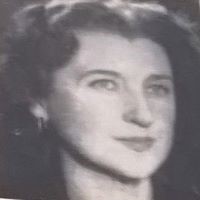Research into Honor Balfour’s career as a journalist continues to yield rewards. It was against the backdrop of the early rivalry between the BBC Talks and News Departments that Honor forged her contribution to broadcasting which would span over the next three decades. The research continues but with the emphasis now firmly on Honor Balfour’s role as arguably the first significant woman current affairs commentator in broadcasting.

Enlarged detail from a Radio Times photograph of Honor Balfour as a panellist on the new television programme, It’s My Opinion. The programme, recorded early evening on Wednesday 21 May 1957 with an audience in Bridgewater, Somerset, was broadcast at 10.15pm. The other two panellists were the Liberal politician Frank (later Lord) Byers (1915-1984) and the journalist and writer Denzil Batchelor (1906-1969). The discussion was chaired by the historian Alan (later Lord) Bullock (1914-2004). Image reproduced by kind permission of Immediate Media Company Ltd., London.
Research into Honor Balfour’s career as a journalist continues to yield rewards. Originally the main focus was to have been on her work as the British staff member in the London office of the American magazine Time, with her freelance work for the BBC, the Guardian, the Observer, etc. as subsidiary areas. Honor’s private papers in Oxford made a good starting point. Hints that her broadcasting career was by far more significant began to emerge from searches of the BBC Genome, and the more extensive coverage in the volumes of the Radio Times, handily available on shelves in the British Library’s Humanities 2 reading room.
But it’s in the files in the BBC Written Archives Centre at Caversham that the real discoveries are to be made, and not only those on Honor (relatively few in number but key to the emerging narrative) but also in the files on Stephen Bonarjee (1912- 2003), the producer with whom Honor worked over many years on topical issues radio programmes, and Doreen Stephens (1912-2001) another post war broadcasting pioneer (who under her married name, Gorsky, had been a leading women’s rights campaigner).
Reading Bonarjee’s newly-released 1980 oral history interview and his staff file, and those for Topic for Tonight, the programme he created and to which Honor regularly contributed, from 1949 until it was discontinued in 1959, has been revelatory. The research continues but with the emphasis now firmly on Honor Balfour’s role as arguably the first significant woman current affairs commentator in broadcasting.
It was against the backdrop of the early rivalry between the Talks and News Departments (which nearly killed off Topic for Tonight at the outset), the pitching of programmes to appeal to audiences including those whose schooling had ended at fourteen, and women, especially housewives, that Honor forged her contribution to broadcasting which would span over the next three decades. Her final broadcast was on 4 May 1979 and as prescient as ever.
